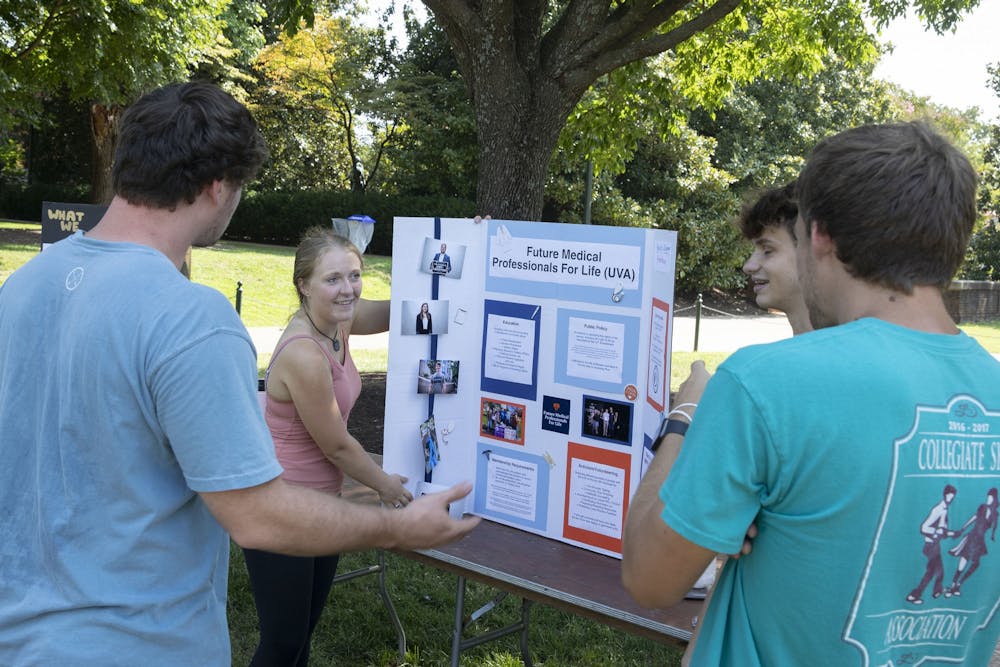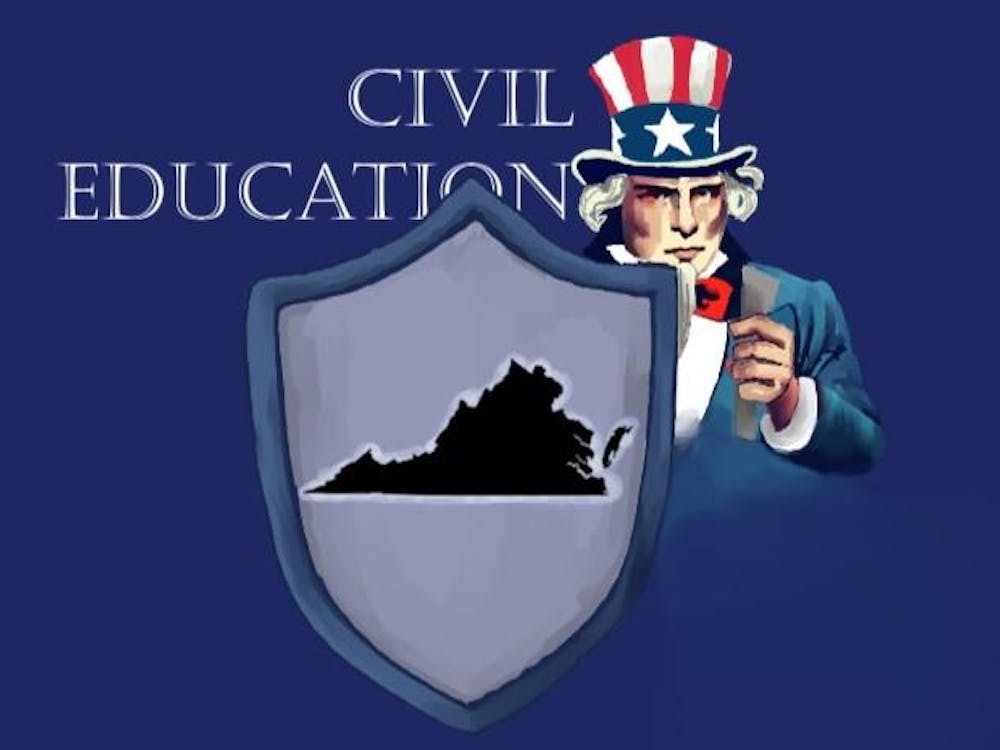In a recent column, Opinion Columnist Noah Strike accused the University of supporting conservative “extremism” for highlighting pro-life groups on Grounds, claiming that such ideology is inherently violent. Such an argument is absolutely baseless — intrinsically flawed in that it relies upon establishing guilt by association — and betrays a sheltered worldview that seeks to demonize people who hold opposing views on controversial subjects. Moreover, claims that political opinions are inherently violent needlessly sow a culture of division — something which has the potential to actually provoke real violence and extremism.
The debate over abortion in U.S. is one of the most controversial in politics — passions on both sides are intense, and there is no clear right or wrong moral answer. While proponents of abortion argue that it is an important women’s health procedure that ought to be accessible, opponents believe that it constitutes the murder of an unborn life. Given this dynamic, passions rightly get heated. Importantly, neither side can legitimately claim a monopoly on morality — and the United States’ divided public opinion on the matter makes that clear.
But to say that an organization positioned on one side of the issue somehow promotes violence is absolutely asinine. First of all, the explicit connections Strike unsubstantially argues exist between Future Medical Professionals for Life and violent incidents at abortion clinics are tenuous at best. And while protests that get out of hand are certainly condemnable, Strike’s arguments seem to suggest that anti-abortion groups should not to be entitled to their constitutional right to protest because doing so “traumatizes patients and clinic staff.”
To make such a claim represents either a remarkable degree of ignorance around the First Amendment, or perhaps just a belief that speech one disagrees with ought to be banned. Free speech only works when it extends to everyone, even the most reprehensible ideas and groups. After all, when censors begin to define what is and is not extreme — an entirely subjective construct — they institute their own biases that arbitrarily restrict people’s freedom. And while patients and providers certainly deserve protection from any trauma they may experience from being on the receiving end of a protest, their rights do not somehow cancel out those of anti-abortion groups to protest in the first place.
Thus, groups like FMPL have every right to vocally protest abortion, and doing so is simply an extension of the political discourse surrounding one of our society’s most controversial moral dilemmas. But to mischaracterize such protected activity as “violent” is disingenuous, and betrays a deep sense of intolerance for differing views.
This mischaracterization of political discourse as violent is unfortunately not limited to Strike. Indeed, seemingly everywhere, both sides of the political spectrum take every opportunity to call the other extremists, or to argue that differences of opinion are somehow violent.
Take the conversation surrounding comedian Dave Chappelle’s comedy special, “The Closer.” In it, Chappelle expressed his opinions on issues related to the transgender community, which many found offensive and condemned. However, without weighing into the substance of the controversial special itself, one ought to take issue with the many assertions made that Chappelle’s words caused violence to the transgender community.
This is because, as we all know, opinions cannot be violent. People may disagree or have their feelings hurt, but they cannot be physically harmed by people voicing their opinions on controversial topics. And in Chappelle’s case, that’s all he did — he said what he thinks, and people can either agree or disagree — and in no way whatsoever did he cause violence.
Some may disagree and argue that the violence caused by such opinions is in how they may inspire others to act. The problem with those claims, however, is that they rely on a slippery-slope argument that does not establish clear cause and effect. After all, why should we restrict speech on the basis of what someone might hypothetically do in response? That’s the same logic as those who would ban criticism of the government out of fear it would spark an armed insurrection.
But the implications of labelling mere opinions as extreme or violent are worrying. At a time when our country’s political polarization has never been higher, where there have been countless incidences of actual violence, recklessly labelling the free expression of opinions as extreme is just throwing gas on the fire. It is those labels of extremism in situations where freely expressed opinions do not promote violence that leads people to be radicalized and to engage in actual acts of violence. This is because the wrongful labelling of a group as extremist will either inspire violence against them by the other extreme, or alienate them until they ultimately adopt extremist views through a self-fulfilling prophecy.
Instead, we ought to tone down the temperature of public discourse, and reserve labels of extremism and accusations of causing violence for situations that truly merit them. Only then — if we meet arguments we disagree with in good faith and respect that people are entitled to hold contrasting opinions — can we begin working towards stopping the real extremism and violence.
Matt Heller is an Opinion Columnist for The Cavalier Daily. He can be reached at opinion@cavalierdaily.com.







